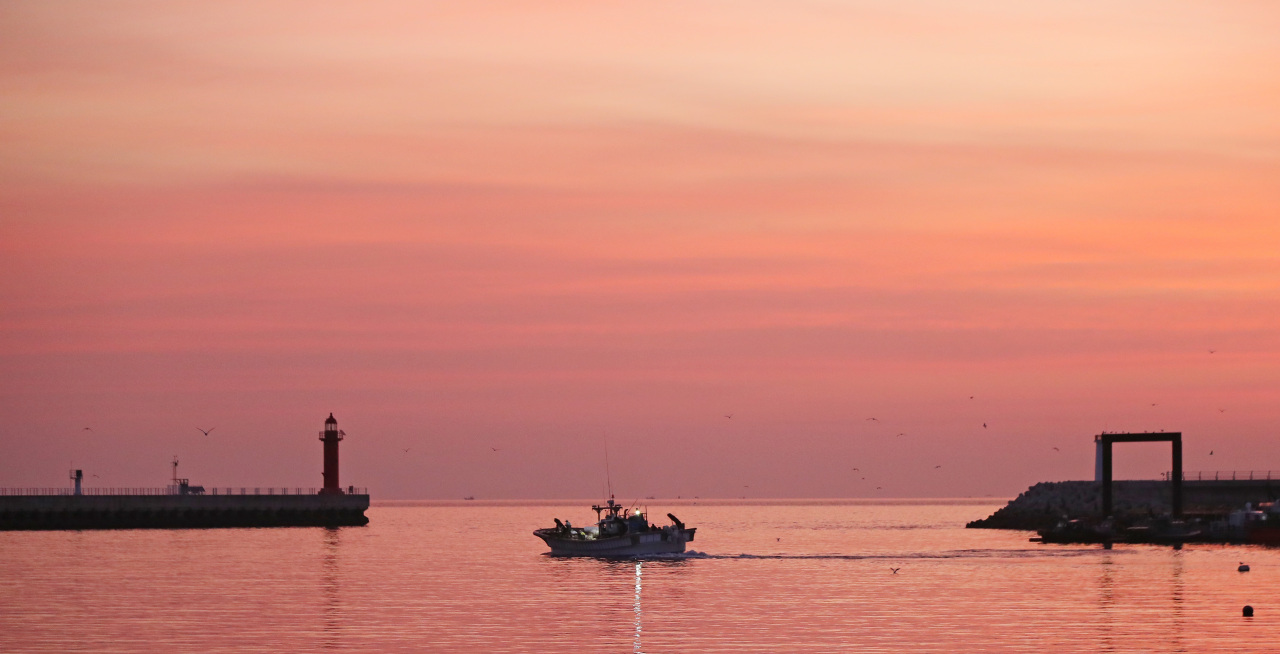
North Korea continued illicit maritime exports of coal and imports of petroleum products despite having stopped most trade due to the spread of COVID-19, according to international experts affiliated with the United Nations Security Council.
North Korea only temporarily suspended coal exports between late January and early March, the panel of experts on the UNSC’s North Korea sanctions committee said in a midterm report published Sept. 28.
“Satellite imagery provided by a member state and information shows that in this period multiple vessels of the Democratic People’s Republic of Korea continued to conduct ship-to-ship transfers in waters of another member state and made deliveries of coal. The DPRK has continued to earn income from the illicit transfer of fishing rights,” the panel said.
The panel also suggested that North Korea is continuing to develop nuclear weapons and missiles through miniaturization of nuclear devices to fit into the warheads of its ballistic missiles, and is handling submarine-launched ballistic missiles.
The report, written by the expert panel based on its own investigations and assessments as well as reports from member states, has been ratified by 15 UNSC members.
Citing a member state, the panel said North Korea resumed coal exports in late March when three vessels loaded coal at Chongjin, sailed to the Ningbo-Zhoushan area and offloaded coal in Chinese territorial waters.
“Satellite imagery provided by a member state recorded some DPRK vessels loading coal at Nampo and Taean ports prior to arriving in Chinese waters, where several of the vessels were shown at anchor with cargo hatches open with what appeared to be coal,” the panel said.
A member state reported that since the North resumed exports of coal, at least 32 of its vessels have left the country laden with coal, and the vast majority of these shipments were offloaded in China’s Ningbo-Zhoushan area through ship-to-ship transfers.
North Korea has also continued to flout UNSC resolutions through the illicit import of refined petroleum products via ship-to-ship transfers and direct deliveries.
DPRK tankers and other tankers continued to offload their refined petroleum mainly at the Marine Import Terminal at Nampo, via petroleum delivery lines at piers or off-pier at petroleum buoys, according to the panel.
Citing a report from 43 member states including South Korea and the US containing imagery, data and calculations covering the period from January through May, the panel said that deliveries of refined petroleum products to the DPRK in the five-month period alone already far exceeded the aggregate amount of half a million barrels set by the UNSC as the annual ceiling for 2020.
A Sierra Leone-flagged vessel named the Diamond 8, for instance, was without an automatic identification system signal for 14 days in February and 10 days in March while sailing north through the Yellow Sea (West Sea).
Imagery provided by a member state confirmed that the Diamond 8 made at least two port calls at Nampo in February and March 2020 to deliver refined petroleum. The panel said it has written to Sierra Leone, and is awaiting a response.
A company with a registered address in Indonesia, Vanguard Ship Management, is listed as the Diamond 8’s ship manager as of September 2019, but Jakarta has stated that neither the company nor the vessel is listed in the databases of Indonesia.
China, however, said that the report by the 43 states is “only based on assumptions and estimates,” and “it is neither scientific nor prudent to reach a conclusion that the annual limit has been exceeded based on such estimations.”
Russia said the report “does not provide objective, accurate and verifiable information or have enough solid imagery evidence.”
The US responded that the images included in the report are “robust in their quality and quantity and clearly demonstrate a breach of a cap.”
North Korea also continues to sell fishing rights to entities in a third country, allowing foreign fishers to operate in North Korean waters, according to a member state, which said it observed about 70 fishing boats heading toward DPRK waters up to the end of May 2020.
Citing assessments by multiple member states, the panel said North Korea had probably developed miniaturized nuclear devices to fit into the warheads of its ballistic missiles.
A member state assesses that the DPRK may seek to further develop miniaturization in order to allow the incorporation of technological improvements such as penetration aid packages, or potentially to develop multiple warhead systems.
A container, around 16-17 meters long and 2.5 meters wide, large enough to carry a Pukguksong-1 or Pukguksong-3 missile, has been detected since May 27 almost at the same location where a container was detected 10 days before the SLBM launch test on Oct. 2, 2019.
The panel also said that activity observed at the secure boat basin of the Sinpo south naval shipyard since May 2020 could be related to the handling of SLBMs or preparations for a further SLBM launch test.
The panel said North Korea is continuing its nuclear program, including the production of highly enriched uranium and the construction of an experimental light water reactor.
At the Punggye-ri nuclear test site, intermittent activities including snow clearing, continuous foot traffic and the presence of groups of personnel and vehicles were observed through satellite imagery, according to the panel.
The panel also obtained new information on previously reported cases of the importing into the North of luxury items such as vehicles and alcohol.
According to a member state, North Korea continued attempts this year to import Mercedes-Benz S-Class limousines using companies based in third countries.
By Kim So-hyun (sophie@heraldcorp.com)







![[KH Explains] Hyundai's full hybrid edge to pay off amid slow transition to pure EVs](http://res.heraldm.com/phpwas/restmb_idxmake.php?idx=644&simg=/content/image/2024/04/18/20240418050645_0.jpg&u=20240419100350)







![[From the Scene] Monks, Buddhists hail return of remains of Buddhas](http://res.heraldm.com/phpwas/restmb_idxmake.php?idx=652&simg=/content/image/2024/04/19/20240419050617_0.jpg&u=20240419175937)

![[KH Explains] Hyundai's full hybrid edge to pay off amid slow transition to pure EVs](http://res.heraldm.com/phpwas/restmb_idxmake.php?idx=652&simg=/content/image/2024/04/18/20240418050645_0.jpg&u=20240419100350)

![[Today’s K-pop] Illit drops debut single remix](http://res.heraldm.com/phpwas/restmb_idxmake.php?idx=642&simg=/content/image/2024/04/19/20240419050612_0.jpg&u=)